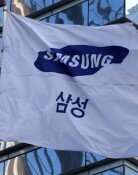[Editorial] New Strategies to Counter NK Needed
[Editorial] New Strategies to Counter NK Needed
Posted May. 27, 2009 09:02,
North Koreas second nuclear test Monday has forced South Korea to seriously consider the establishment of a new security framework for survival. Until now, the denuclearization of the Korean Peninsula has been pursued through negotiations centered on the six-party talks. Such peaceful means, however, have produced no results and have only bought time for the North to develop nuclear weapons. The dialogue has clearly shown its limitations. Many are urging the U.N. Security Council to devise strong and effective measures to punish the communist country, while certain experts want Seoul to consider securing its own nuclear deterrent, let alone strengthen its military alliance with Washington.
The way South Korea responds to the Norths military provocations should also be changed. Along with the nuclear test, Pyongyang fired three short-range missiles into the East Sea Monday and two more Tuesday. Preparation for another missile launch in the West Sea was also detected. If the North breaches the Northern Limit Line, the de facto border in the West Sea, South Korea must show a renewed determination to sternly deal with the provocation by harshly punishing the North. In this regard, the Lee Myung-bak administrations announcement to join the U.S.-led Proliferation Security Initiative, a campaign against the proliferation of weapons of mass destruction, is a welcome change in Seouls way of dealing with Pyongyang.
Three proposals have appeared for the South to counter the Norths nuclear weapons: inducing Pyongyang to renounce its nuclear development program via negotiations or compulsory means; Seoul possessing its own nuclear weapons for self-defense; and reliance on the U.S. nuclear umbrella. The Norths latest nuclear test clearly demonstrates that Pyongyang will not renounce its nuclear ambition unless its nuclear facilities are attacked and destroyed. The argument for South Korea going nuclear is based on the premise that a nuclear attack can be deterred only by nuclear weapons. This is out of the question, however, given international relations and agreements that South Korea has signed.
Therefore, protection under the U.S. nuclear umbrella is the best practical countermeasure. To get such protection, a robust South Korea-U.S. alliance is a prerequisite. Since the Roh Moo-hyun administration, however, doubt has lingered among both the South Korean government and its people over whether the United States will readily come to the rescue. In particular, it is uncertain that Washington will keep its commitment to the protection after it transfers wartime operational command to Seoul and the dissolution of the Combined Forces Command on April 17, 2012.
In this context, the argument for reconsidering the transfers timing and the commands dissolution sounds convincing. Seoul must bring this up and put efforts into negotiations with the Washington. In addition, the U.S. nuclear umbrella will be a deterrent only when the North realizes that the United States will not sit idly by if the North launches a nuclear attack on the South.
Experts say the Defense Reform 2020 plan drawn up under the Roh administration is designed to deal with a North Korea armed with conventional weapons, not a nuclear arsenal. They suggest procurement of high-tech weaponry, improvement of precision attack capability, development of new weapons, and drastic enhancement of operational systems. Others say defense-oriented strategies should also be adjusted to incorporate aggressive and active features.
The Missile Technology Control Regime, the only multilateral missile nonproliferation arrangement, which bans missiles with a range exceeding 300 kilometers, prevents South Korea from properly reacting to North Koreas missile threat, experts say. So this limitation should be dealt with through negotiations with the United States. In addition, South Korea is restricted in the use of nuclear power despite being the worlds sixth-largest producer of nuclear energy. Since the conclusion of the 1991 inter-Korean declaration on the denuclearization of the Korean Peninsula, the South has given up uranium enrichment programs. The North, however, has breached the agreement and extracted weapons-grade plutonium by reprocessing nuclear fuel. Seoul, which has abided by the agreement, has yet to realize its nuclear power potential.







